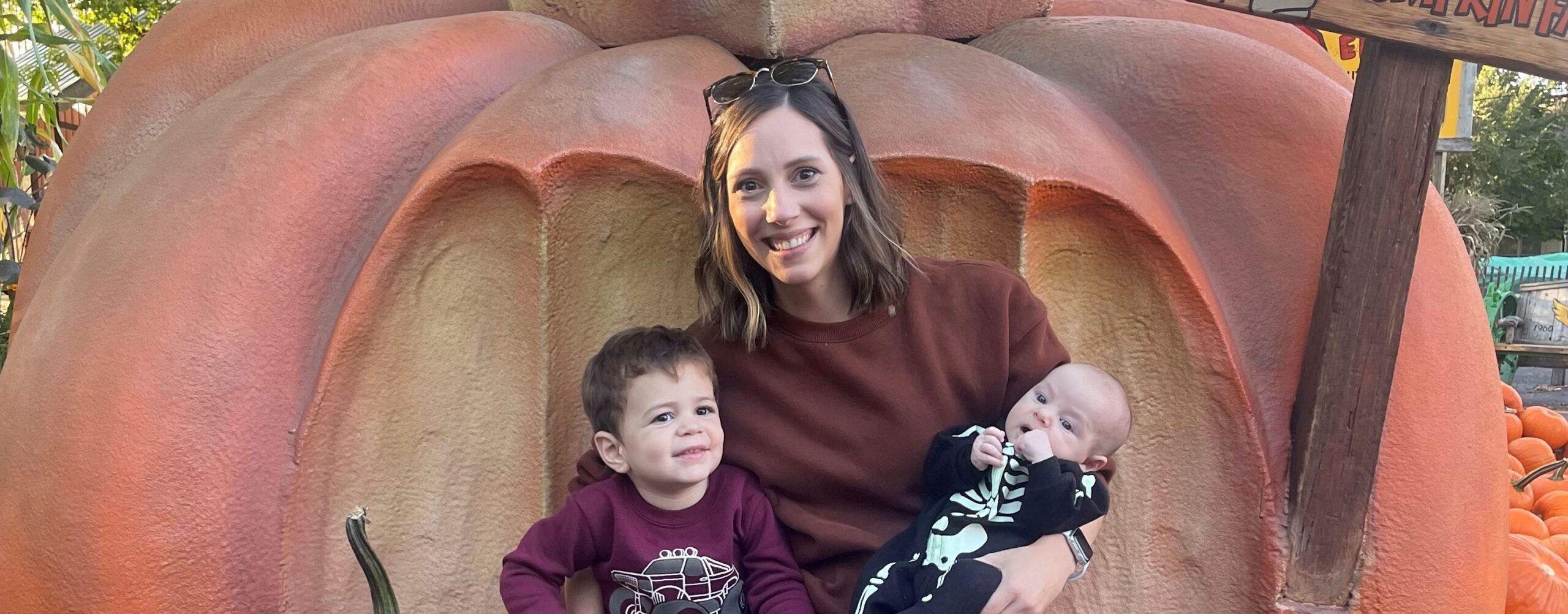Hello, My name is Anthony and I’m an HSP
About four years ago, I worked for an employee assistance program as a clinical supervisor of an intake center. I loved mentoring and training staff, developing systems to make our workflow more efficient, and helping clients struggling with their mental health. While I felt a deep, passionate connection to the work, I began to notice over the years a sense of dread and exhaustion set into my daily routine. If I loved my work so much, why did I always have a stomach ache walking into the office? And why did I feel so depleted by lunch time every single day?
These feelings came to a head on the day of our baby shower. I vividly recall standing on a crowded sidewalk on a hot August morning, holding a giant cake with one hand and my phone in the other. On one line was my mom trying to find my location so she could pick me up; on the other was work, again– a client request for onsite services following a traumatic incident at their company. On the outside, I appeared calm, focused, and in control. But on the inside, my mind and heart raced, while I contemplated launching that damn cake into the street and running until I disappeared from the face of the earth. At least then, maybe I could hear myself think.
When I arrived home, I put on my fake smile, buried my feelings, and pushed through the rest of the day. My acting skills seemed to convince everyone but my wife, who could sense my mood. She expressed her concerns for how my negativity was impacting her, as well as how it would affect our daughter. I felt ashamed and embarrassed for putting my 8 months pregnant wife through all of this and wondered what was wrong with me. But a few days later, something in me shifted. My feelings of despair transformed into motivation for change. I recognized that this version of my life was no longer sustainable, especially with a baby on the way. I began to notice how my work environment had caused me to feel overwhelmed and negative on a daily basis. The 300 emails to answer every morning. The 24/7 on call work, crisis calls, and no time for lunch breaks. The open floor plan. The literal constant ringing of phones. I was overstimulated and exhausted. Later that night, I noticed a book from the stack on my nightstand, called The Highly Sensitive Person by Elaine Aron. Over the next few days, I devoured that book and came to the realization that I was a highly sensitive person, or HSP.
What’s an HSP?
According to Dr. Aron, HSPs (roughly 20% of the population) have the trait of sensory-processing sensitivity, which shows itself through emotional sensitivity and reactivity to both internal and external stimuli. In other words, this sensitivity allows us to connect with and process information, ideas, events, people, and things more deeply than the average individual. When stimulation is low or managed well, this trait allows for deep thinking and feeling. We’re intuitive, empathetic, creative, and thoughtful. But when overstimulated, the HSP’s sensitivity shifts to reactivity and we may become angry, anxious, or withdrawn.
Like a Richter Scale
After reading this magical book, I began to view my sensitivity as a powerful piece of my identity. My sensitivity wasn’t a weakness, but rather a strength. It helped explain why I was always the helper or listener to my friends and family growing up. Why I pursued psychology and social work in school. Why I never wanted to make plans on Sundays. And why I was always perceived as quiet and shy. Much like a Richter Scale, I could pick up on things most others didn’t even notice.
Recalibrating My Superpower & Avoiding a People Hangover
This increased awareness of others’ emotions was both a superpower and a curse, depending on how well I had been taking care of myself. Without the proper dose of quiet time and space in my day, my heightened sensitivity to internal and external stimuli in the environment led to feelings of depletion. This is what I now call a “People Hangover”.
As my HSP education and journey have continued, I’ve become much more intentional about my “sensory diet”. The first change I made was leaving a job that had become toxic to my well-being, where I would no longer endure constant overstimulation for hours on end. I began working at a group therapy practice, sitting in a quiet room with a door that closed, with only one client at a time–what a luxury! I began watching less tv, and reading more books before bed. I made it a priority to get out into nature almost every day–extra HSP points for being near a body of water! I also shared my new identity with my wife, who turned out to be an HSP as well and is currently going through her own journey of self-discovery. And I began to set firm, healthy boundaries around my time with family and friends to ensure I had the energy required to make it through my day.
In my work with clients, we frequently discuss the idea that everything that happens in life, no matter how terrible or intense, is data. Our emotions are critical feedback. If we sit with that discomfort and try to hear what it’s teaching us, our intuition may kick-in and help guide us toward our goals. A life in harmony with our values. And without my rage-filled moment of panic and overstimulation on the day of our baby shower, I wouldn’t be where I am today. Healthier, happier, and now a family of four with two little girls!
Resources
If you’re interested in learning more about the highly sensitive person, check out the links below:
Want to learn more about HSP?
Books on the highly sensitive person, parent, and child



